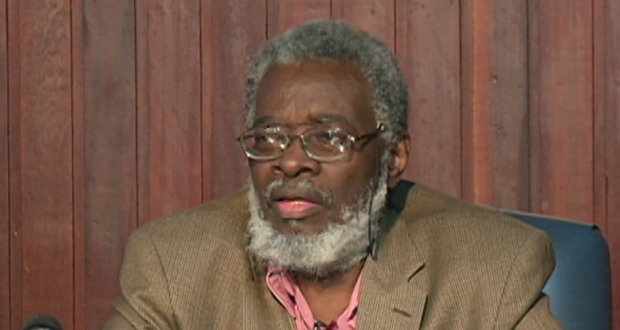
Int’l electoral observer groups have been invited – Dr. Luncheon
AHEAD of the May 11 General and Regional elections, international electoral observers have been invited to field missions to Guyana.The disclosure was made by Head of the Presidential Secretariat (HPS), Dr. Roger Luncheon, yesterday.
“We have sent out invitations to all of the conventional international agencies that have been invited historically,” he told the Guyana Chronicle, in an invited comment.
The traditional observer missions include the Organization of American States (OAS), the Commonwealth, the Caribbean Community (CARICOM) and the Union of South American Nations (UNASUR).
Dr. Luncheon stated that the invitations were sent out last week.
“I don’t believe we will get response immediately. It is our expectation that those who have fielded electoral observer missions before will do us the honour of doing the same thing, of responding similarly,” he said.
Meanwhile, Chairman of the Guyana Elections Commission (GECOM), Dr. Steve Surujbally, told the Guyana Chronicle that the move is a welcome one.
“We are convinced of the rightness of our procedures and the directions we have taken and the observers who are coming in, we hope they will support and endorse the correct path and methodologies we have taken,” he told this newspaper yesterday.
Additionally, the Guyana Public Service Union (GPSU) has approached the Commission for accreditation as a local election observer. The Electoral Assistance Bureau (EAB) is also expected to revamp its operations and act as another local observer.
Dr. Surujbally added that all observers, local and foreign, will be required to sign on to certain protocols before they are accredited as observers.
PEAK AT GUIDELINES
The Guyana Chronicle was able to get an exclusive look at these protocols, which outline the roles and functions of the observer groups.
Relative to foreign observers, the missions, according to the protocol, will be expected to adhere to more than 35 guidelines.
These include refraining from announcing election results without the authority of GECOM; respect for the domestic laws of Guyana; respect for Guyana’s people and culture; refraining from interfering in or impeding the normal course of the electoral process; informing GECOM of its objectives; respect for the role, status and authority of election officials and exhibiting a respectful and courteous attitude to election officials and voters; acting in a neutral and unbiased manner in relation to the GECOM, political parties, candidates, voters and the media; and refraining from accepting gifts from parties or persons involved in the elections process.
A major guideline urges missions to, “Exercise particular caution when issuing public statements reflecting upon the Guyana Elections Commission, preferably there should be no adverse statements made on Elections Day. All relevant statements should be documented in the final report.”
Another similar guideline of equal importance is that missions should, “refrain from attempting, without permission, to provide guidance or information to persons involved in the electoral process and from providing interpretations of applicable laws.”
Other guidelines relate to wide consultation with stakeholders in the electoral process and the deployment of observers in as many polling stations and counting centres as possible, in order to observe the compilation and communication of results.
In addition to the guidelines, the rights and privileges of accredited election observer groups were also outlined and include the right to access polling and counting stations, as well as GECOM offices; attend meetings convened for the briefing of election observers or for any other purpose; communicate with any person inside polling stations, other than a voter; and protection by political parties against any exposure to insult, hazard or threat in the course of exercising their duties.
Similar rights and guidelines apply to local observer groups, which were detailed in a separate document the Guyana Chronicle has seen.
Also, under the Election Law (Amendment) Act No. 15 of 2000, Section 20 states that: “The Commission may approve of local organisations observing the democratic process involved in any election provided such organisations fulfil such conditions as may be stipulated by the Commission.”
Both protocols, for foreign and local observer groups, stated clearly that if GECOM considers that an observer group as “willfully, without restraint, overtly and/or with malice aforethought breached the modus operandi and protocols” outlined by the Commission, GECOM has the authority to and may rescind/withdraw its accreditation from the individual errant observer or even from the entire Observer Mission.
(By Vanessa Narine)

